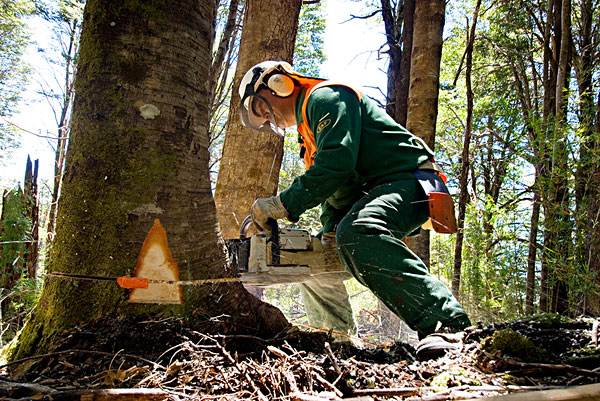The characteristics of tea production itself determine that there are obvious differences between the tea plantations and other crops. Many pesticides are not suitable for use in tea gardens. The use of tea in tea gardens is particularly safe and reasonable. The so-called safe and rational use of pesticides requires effective prevention and control of diseases and insect pests. It is safe to humans, livestock, fish and tea, has low residual toxicity, does not pollute the environment, does not kill natural enemies, and can prevent or delay the development of drug resistance. It is said that it is economical, safe, and effective.
To achieve safe and rational drug use, the most fundamental thing is to firmly implement the principle of "prevention first, comprehensive prevention and control," and apply pesticides from an ecological point of view. On the basis of agricultural control, chemical prevention and biological control are combined to coordinate application. In production practice, we should mainly proceed from the following aspects:
1. Reasonably choose pesticides. Choose drugs that are highly effective, low in toxicity, low in residue, safe to the tea and natural enemies, and have no adverse effects, low in cost, know the characteristics of drugs, and control subjects, and use targeted drugs.
2. Reasonably choose the application period. This is the key to rational drug use. For example, it is necessary to control the black locust mealworms in the larvae incubation period; protection of natural enemies should avoid the application of parasitic natural enemies during the budding period; to avoid residual poisons, we must strictly abide by the safe interval of application.
3. Use the appropriate concentration, dosage and number of medications. The use of the lowest effective concentration, the amount of drug used, and the least number of effective times can meet the requirements of economy, safety, and effectiveness, so as to save the cost of medicine, labor, cost, and residue, and to favor natural enemies. Do not arbitrarily increase the concentration and dosage of the drug, and avoid blindly applying the drug.
4. Use proper application methods. According to the pesticide formulations, the actual situation of the tea garden, choose the appropriate method of application.
5. Mix and use pesticides properly. It can prevent diseases and insects from producing drug resistance, and it can also serve as both a cure and a synergistic effect, and can reduce the number of medications. Rotating pesticides should be used to select agents that have different toxicological mechanisms and do not produce cross-resistance. In addition, we must understand that pesticides should not produce undesirable chemical reactions and physical changes after mixing, and should not cause phytotoxicity to crops. For new pesticides, whether they can be mixed or not, they should be first tested in the community and then promoted.
6. To correctly view the effectiveness of prevention and control. Instead of unilaterally pursuing percentage control, we must look at the effect of prevention and control from the perspective of ecology and the economic benefits of agricultural production. Do not rely solely on chemicals, and do not unilaterally pursue high percentages of prevention and control.
To achieve safe and rational drug use, the most fundamental thing is to firmly implement the principle of "prevention first, comprehensive prevention and control," and apply pesticides from an ecological point of view. On the basis of agricultural control, chemical prevention and biological control are combined to coordinate application. In production practice, we should mainly proceed from the following aspects:
1. Reasonably choose pesticides. Choose drugs that are highly effective, low in toxicity, low in residue, safe to the tea and natural enemies, and have no adverse effects, low in cost, know the characteristics of drugs, and control subjects, and use targeted drugs.
2. Reasonably choose the application period. This is the key to rational drug use. For example, it is necessary to control the black locust mealworms in the larvae incubation period; protection of natural enemies should avoid the application of parasitic natural enemies during the budding period; to avoid residual poisons, we must strictly abide by the safe interval of application.
3. Use the appropriate concentration, dosage and number of medications. The use of the lowest effective concentration, the amount of drug used, and the least number of effective times can meet the requirements of economy, safety, and effectiveness, so as to save the cost of medicine, labor, cost, and residue, and to favor natural enemies. Do not arbitrarily increase the concentration and dosage of the drug, and avoid blindly applying the drug.
4. Use proper application methods. According to the pesticide formulations, the actual situation of the tea garden, choose the appropriate method of application.
5. Mix and use pesticides properly. It can prevent diseases and insects from producing drug resistance, and it can also serve as both a cure and a synergistic effect, and can reduce the number of medications. Rotating pesticides should be used to select agents that have different toxicological mechanisms and do not produce cross-resistance. In addition, we must understand that pesticides should not produce undesirable chemical reactions and physical changes after mixing, and should not cause phytotoxicity to crops. For new pesticides, whether they can be mixed or not, they should be first tested in the community and then promoted.
6. To correctly view the effectiveness of prevention and control. Instead of unilaterally pursuing percentage control, we must look at the effect of prevention and control from the perspective of ecology and the economic benefits of agricultural production. Do not rely solely on chemicals, and do not unilaterally pursue high percentages of prevention and control.
Face
shield is a protective device commonly used to protect wearer's entire face (or part of it) from hazards such as flying objects and road debris, chemical splashes (in industry), or potentially infectious materials (in medical and laboratory environments).
The shield can be made of PC, PVC, wire mesh for use in different workplace.

Face Shield,Safety Face Shield,Clear Face Shield,Pc Face Shield
Greateagle Safety Products Co., Ltd. , https://www.greateaglesafety.com